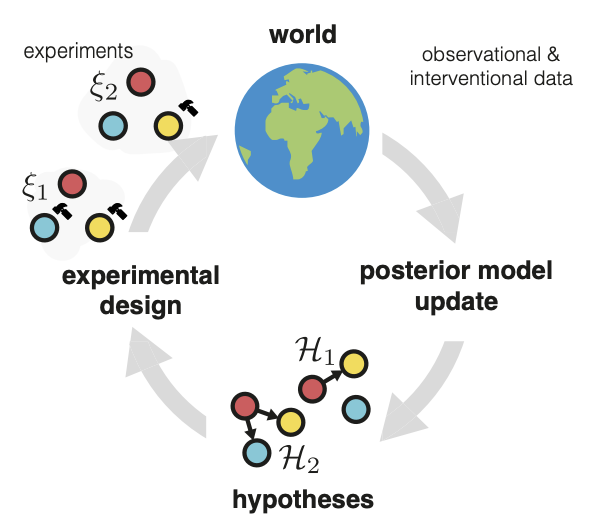Back to all publications...
Differentiable Multi-Target Causal Bayesian Experimental Design
We introduce a gradient-based approach for the problem of Bayesian optimal experimental design to learn causal models in a batch setting — a critical component for causal discovery from finite data where interventions can be costly or risky. Existing methods rely on greedy approximations to construct a batch of experiments while using black-box methods to optimize over a single target-state pair to intervene with. In this work, we completely dispose of the black-box optimization techniques and greedy heuristics and instead propose a conceptually simple end-to-end gradient-based optimization procedure to acquire a set of optimal intervention target-value pairs. Such a procedure enables parameterization of the design space to efficiently optimize over a batch of multi-target-state interventions, a setting which has hitherto not been explored due to its complexity. We demonstrate that our proposed method outperforms baselines and existing acquisition strategies in both single-target and multi-target settings across a number of synthetic datasets.
Panagiotis Tigas, Yashas Annadani, Desi R. Ivanova, Andrew Jesson, Yarin Gal, Adam Foster, Stefan Bauer
ICML, 2023
Machine Learning for Drug Discovery Workshop (spotlight), ICLR 2023
Differentiable Multi-Target Causal Bayesian Experimental Design, ICML 2023
[arXiv] [BibTex]

